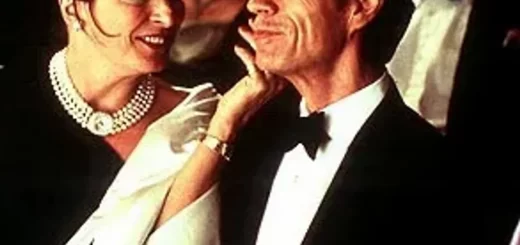Home Video Hovel- La Promesse, by West Anthony
At first, La Promesse seems like it’s going to be another coming-of-age story with a callow youth at its center; as the teenage Igor (Jeremie Renier) attends to an elderly lady’s car trouble at the gas station where he works, he slips inside the car to start the engine and slips her pocketbook into his clothing. All right, we may think, his morals are obviously compromised, but surely a life lesson of some kind lurks around the bend, forcing our young protagonist to become a man and accept the responsibilities, moral and otherwise, that manhood entails.
There is a lesson coming, but as lessons go, it’s a lulu. It isn’t long before we see that the apple doesn’t fall far from the tree: Igor’s father Roger (Olivier Gourmet) is running a profitable enterprise in the trafficking of undocumented workers. Taking their money, putting them up in shabby apartments, getting them to work for peanuts, all in exchange for the hope of a better life away from their homes… Roger thinks nothing of his activities, and even less of the effects they have on his son. And Igor seems as unconcerned about the situation as his father, as he participates blithely in the collecting of money and moving human beings hither and yon like so much cattle. All this, however, changes radically when the husband of a recent “client” is accidentally killed, and the husband’s dying request is that Igor take care of the wife and baby he is leaving behind. Igor promises to do so, and what begins quite probably as hurried words spoken without thinking in order to bring comfort to a dying man gradually takes on much more tragic dimensions as Igor becomes determined to keep the promise he has made.
The Belgian brothers Luc and Jean-Pierre Dardenne broke through with this 1996 film after working in documentaries and a couple of lackluster features. Their documentary background is evident in the restless, searching camera that never seems to be nailed down, always ready to capture a moment as though it were happening for the first time. The cinema verite approach lends an urgency and gritty realism not only to the story but to the worn environs of the working-class town of Seraing, the Belgian city where the Dardenne Brothers were born and raised; despite the faraway European location, the film looks like any industrial town anyone has lived in or passed through. The Brothers’ filmmaking technique adds spontaneity to the actors’ performances — one never feels that a performance is on display, but that real lives are in conflict, and that real lives hang in the balance. As Roger dispassionately endeavors to rid himself of the newly-widowed Assita (Assita Ouedraogo) and her infant son, Igor steps up to adulthood and accepts the task of saving them from more trouble. The conflict between father and son that inevitably rises is gripping and at times suspenseful, and there are moments when you want to cheer Igor on as he indeed comes of age to a greater degree than a teenager should endure. By the time La Promesse reaches its devastating conclusion, it’s hard not to want the film to go on, to see more of how these characters endure, but at a tidy 94 minutes the Dardenne Brothers clearly know that they have said all that they need to say about the situation; it is easy to see why they are among the most highly regarded European filmmakers working today.
La Promesse comes to us in a new DVD and blu-ray edition from The Criterion Collection. The blu-ray sports a fine high-definition transfer and a wealth of goodies, including a trailer, interviews with actors Jeremie Renier and Olivier Gourmet, and an hour-long interview with the Dardenne Brothers. This itself was a pleasant surprise — generally when a filmmaker interview is included it always feels too short, but at a full sixty minutes we are treated to a rather thorough introduction to the Brothers and their aesthetic. Also included is a booklet with an essay by film writer/documentarian Kent Jones. To my chagrin, I had no familiarity with the Dardenne Brothers before watching La Promesse, and this is exactly what I prize The Criterion Collection for: their ongoing curation of the finest in world cinema guarantees that a new undiscovered gem is always lurking around the corner. In the case of La Promesse, it is not only a great film but a great introduction to the Dardenne Brothers’ truly outstanding cinematic career.






























